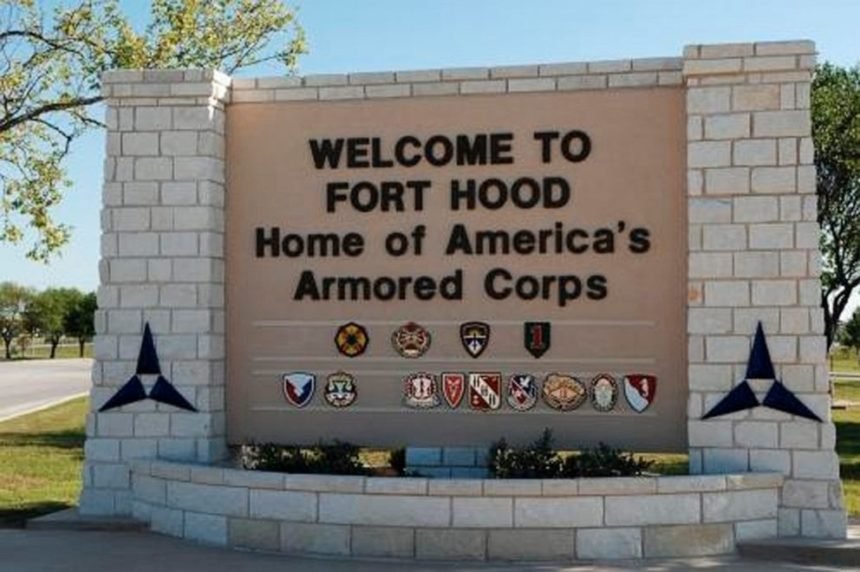Senior U.S. Army officers facing disciplinary action over Fort Hood leadership failings

FORT HOOD, Texas — Multiple senior Army officers and enlisted personnel are expected to face disciplinary action that could result in reprimands, re-assignment or some being relieved of duty when the Army secretary unveils the results of a major independent review of leadership at Fort Hood on Tuesday, according to two defense officials. The probe was initiated after the murder of a soldier and several other deaths at the base this year.
Ryan McCarthy has vowed to hold leaders accountable for failing to keep troops at the base in Texas, which has a population over 60,000 including nearly 37,000 service members, safe from sexual harassment and sexual assault and ensure commanders at all levels are paying close attention to their well-being.
News conferences are due to take place at the Pentagon and Fort Hood on Tuesday to detail the disciplinary action to be taken and unveil a series of reform measures, officials said.
The disciplinary measures expected to be announced generally end careers or push officers into early retirement, the officials said. However, it remains to be seen if action is taken against senior leaders or is confined to those in more junior ranks.
While a separate internal Army fact finding investigation into leadership decisions is still underway, McCarthy has decided not to wait for that to be completed and is moving ahead based on the independent review he ordered over the summer. The internal investigation could lead to additional disciplinary measures being taken.
The outside independent review, being unveiled on Tuesday, is expected to detail deep concerns about the culture at the base and suggest top generals and senior enlisted personnel are not paying enough attention to the welfare of the troops, according to the two defense officials. It outlines specific concerns about how searches for soldiers who have gone missing as well as sexual assault and sexual harassment cases have been handled, the officials say.
“Leaders regardless of rank are accountable for what happens in their units and must have the courage to speak up and intervene when they recognize actions that bring harm to our soldiers and the integrity of our institutions,” McCarthy said in a video statement last month. “It is clear we have significant work to do to regain our soldiers trust.”
Initial action was taken earlier this year when Major General Scott Efflandt was sidelined from a promotion while the independent review was underway. Efflandt essentially was the senior commander at Fort Hood while Lt. Gen Pat White was deployed to Iraq from September 2019 to September 2020. As of Monday, no public statements have been made by the Army about any disciplinary actions being taken against Efflandt.
Thirty-one soldiers assigned to Fort Hood died in 2020. While some were accidents, there were five homicides and 10 suicides.
The independent review was ordered after the death of Vanessa Guillen, a 20-year-old soldier, whose remains were discovered in a shallow grave in late June, months after her disappearance in April. It was later determined she had been bludgeoned to death with a hammer in the armory where she worked and her body was moved by her killer who then killed himself before he could be apprehended.
Officials had named the main suspect in Guillen’s disappearance as Spc. Aaron David Robinson. According to US Army Criminal Investigation Command, the 20-year-old suspect killed himself on July 1, after police confronted him.
The review, announced this summer, set out to “determine whether the command climate and culture at Fort Hood, and the surrounding military community, reflects the Army’s values, including safety, respect, inclusiveness, and a commitment to diversity, and workplaces and communities free from sexual harassment,” according to an Army statement issued at the time. The panel has been interviewing military members, civilians and members of the local community.
The review also is expected to look at whether the Army’s Criminal Investigation Command has enough personnel and resources to properly investigate the fate of soldiers who are reported missing, one of the defense officials said.
The Army is taking the largely bureaucratic step of establishing a new category of “missing” soldiers that is aimed at ensuring rapid action is taken within the two hours of someone going missing, including ensuring residences and social media are searched for clues and that family and friends are notified as well as law enforcement.

